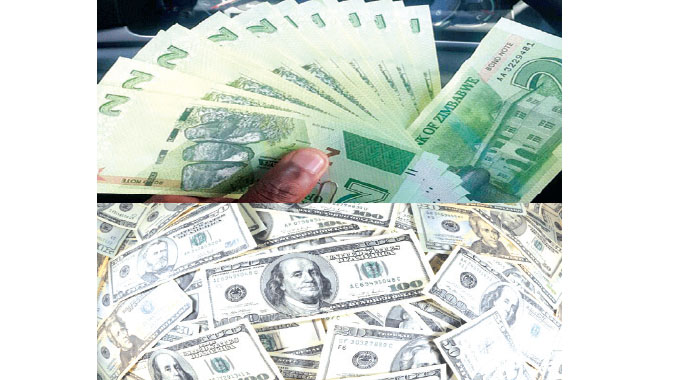
eBusiness Weekly

Clive Mphambela
The currency reform debate this week took an interesting new twist. We saw the substantive reintroduction of the Zimbabwe dollar. This move, while anticipated by many economists, seems to have, however, taken a few people by surprise. But it was and remains a necessary step in the right direction.
Industry has been crying for a soft landing currency for a long while now, while cash shortages in the economy have become a source of pain for the ordinary consumers who have to pay commissions of up to 30 percent to get cash on the streets from informal cash outlets.
Cash remains short in the pockets of ordinary consumers, and foreign exchange remains ever scarcer in the hands of importers who have become desperate for foreign exchange to pay for essential inputs.
Following the decade of instability and hyperinflation spanning 1998 to 2008 which resulted in the decimation of financial assets and the eventual demise of the Zimbabwe dollar, Zimbabweans seem quite hung up by and haunted by the wide spread loss of value of deposits and pensions that they suffered during that epoch.
This resulted in the current dearth of confidence in the financial system. Uncertainty as a result of such fears was revived late last year following a spate of price rises in the goods market as well as share prices on the Zimbabwe stock exchange, which rekindled feelings of trepidation amongst Zimbabweans and indeed foreign investors.
The direct consequence of foreign exchange shortages on the formal market is that we had built a multi tier pricing system in the economy. It was now common place that if one wanted to buy a property in the suburbs, a motor vehicle, domestic capital goods or even groceries down town, you would be asked to pay a lower price in US dollars cash, a slightly higher price if one is paying in bond notes and an even higher price is one is transacting on electronic platforms.
From this entry point, the currency equation required the Government’s immediate attention.
We have to ask ourselves what we have been losing as an economy by allowing the “incorrect pricing” of vital resources such as foreign currency.
Firstly we had the massive price distortions that have been alluded to. We had imposed on ourselves an implicit tax on earners or generators of foreign exchange due to the fixed official peg between local dollars (bond notes) and the real US dollars (nostro dollars and USD cash).
Secondly, the value that was supposed to accrue to generators of foreign exchange was accruing in large part to informal currency traders and speculators on the parallel market. Bear in mind a great many importers with genuine foreign currency needs have to meet these needs using the informal currency system. This is not desirable.
Thirdly, the potential for rent seeking behaviours in the formal markets due to the scarcity factor. Those with privileged access to foreign exchange were taking advantage of the shortages to enjoy “rents”.
Lastly the shortages have resulted in economic “dead weight loss”. This is the lost economic value (welfare) due to inherent economic inefficiencies accruing to no one in particular.
There was a desperate need for a medium of exchange for the common citizen in the economy, one which is earned.
Very few people are earning is US dollars and yet all commerce in the economy was slowly being dollarised. The lack of intrinsic value of the bond note /RTGS dollars has never been in dispute and the resultant pursuit of US dollars was rational. So something needed to be done. It was just a question of time before market forces put pressure on policy to change, particularly to curb arbitrage.
In fact, it would have be extraordinary that people would continue to happily accept low negative interest rates in an environment of very high inflation, and to then expect a stable and low exchange rate. There was a massive in congruency there.
Now that interest rate policy is firmly in the arsenal of the RBZs toolbox for fighting inflation, we will see order quickly return to the market.
◆ The writer is an economist. The views expressed in this article are his personal opinions and should in no way be interpreted to represent the views of any organisations that the writer is associated with.



